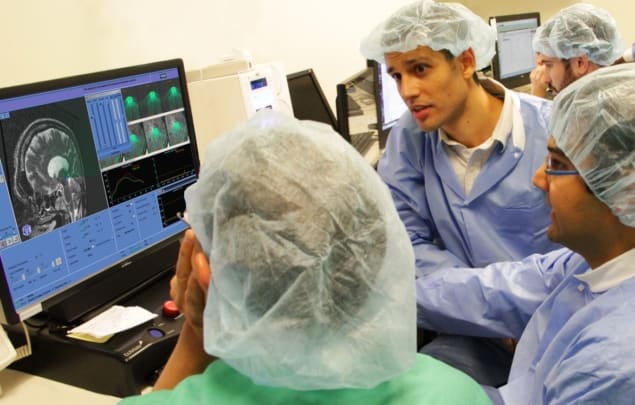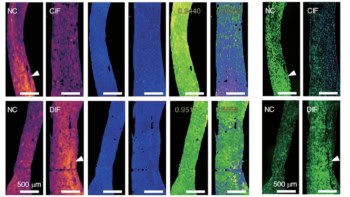
Focused ultrasound treatments use multiple ultrasound beams focused deep within the body to provide non-invasive, targeted therapy for a wide range of clinical applications. Now, researchers at The Ohio State University College of Medicine have begun a clinical trial investigating the use of transcranial focused ultrasound to control a specific type of epilepsy in which seizures are not controlled by medication.
The study will enrol up to 10 patients with medication-refractory lobe focal onset epilepsy. Patients will receive MR-guided focused ultrasound through an intact skull to ablate tissue deep in the brain. The treatment works by passing 1024 ultrasound beams through the scalp, skull and brain tissue (without causing any harm) until they converge at a focal point to ablate a specific part of the brain involved in epilepsy.
“We’re pursuing this clinical trial because we know there’s a large unmet clinical need. More than 20 million people worldwide live with uncontrollable seizures because no available treatment works for them,” explains neurosurgeon Vibhor Krishna, who is leading the study. “Our goals are to test the safety of this procedure and study changes in seizure frequency in these patients.”
Earlier this month, a 58-year-old man became the first patient to be treated with focused ultrasound for epilepsy at Ohio State. During the three-hour surgery in an intraoperative MRI-surgical suite, he remained awake and alert, providing real-time feedback to the treatment team. His feedback helped the team safely ablate the brain region involved in spread of his epilepsy without causing undesirable side effects.
After treatment, the research team plan to monitor all the patients closely for one year. They will use neurological exams and neuro-psychological exams to assess language, memory and executive functioning.
“This is an important step in the evolution of focused ultrasound as a mainstream therapy for disorders affecting the brain,” said Neal Kassell, founder and chairman of the Focused Ultrasound Foundation, which is funding the clinical trial. “Ultimately, the results of this study could lead to new, more effective therapies for certain patients with epilepsy.”



